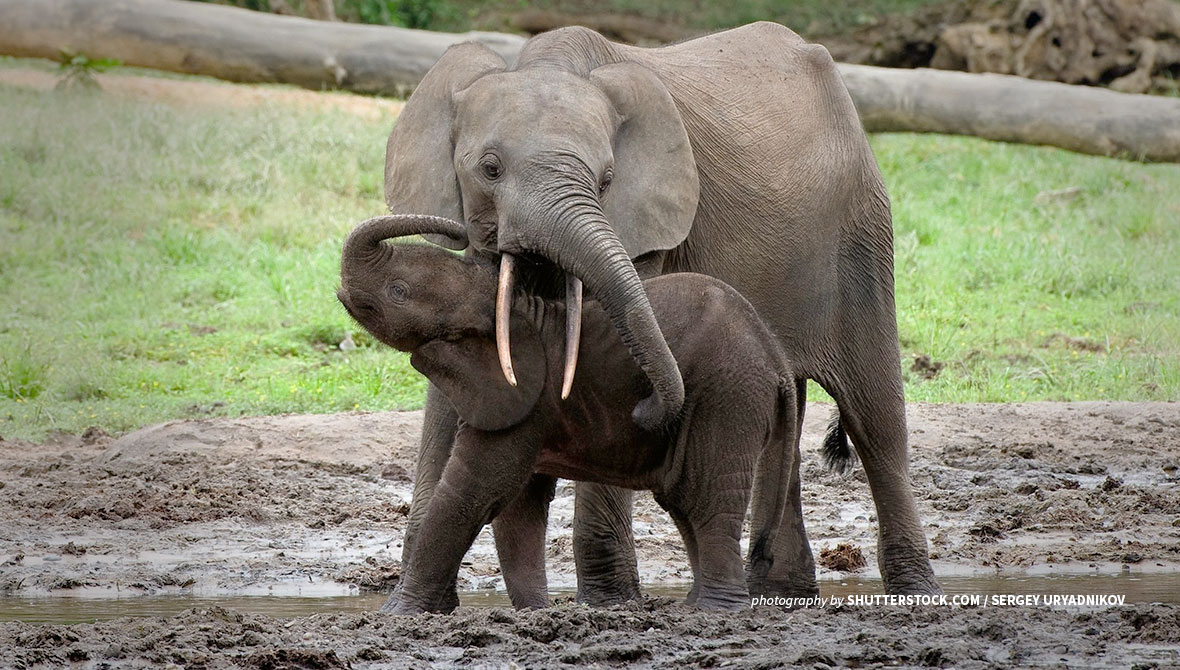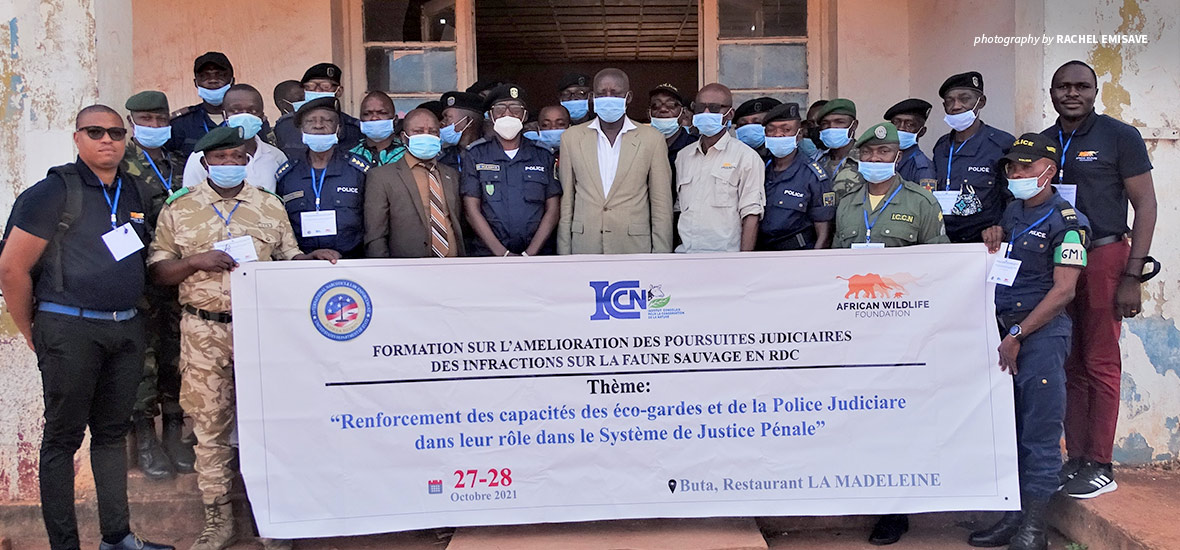AWF-trained wildlife law enforcers crack down on poaching in DRC

Critically endangered African forest elephants found in the Democratic Republic of Congo are targeted by poachers for their ivory tusks
Wildlife poaching and trafficking is a well-organized transnational crime that has decimated iconic species such as elephants, rhinos, pangolins, great apes, and giraffes. This scourge has not spared the Democratic Republic of Congo, given the decline of its forest elephant and great ape species over the last few decades. The International Union for the Conservation of Nature last year reclassified forest elephants as critically endangered, which means that their risk of extinction in the wild is extremely high.
“The number of African forest elephants fell by more than 86 percent over 31 years, while the population of African savanna elephants decreased by at least 60 percent over the last 50 years, according to the assessments,” said the IUCN in its announcement. The conservation status of the savanna elephant on IUCN’s Red List of Threatened Species was also uplisted to ‘Endangered.’
The DRC is home to the world’s second-largest tropical rainforest and river basin, the Congo Basin, and as such, it is one of the most biodiverse countries in the world. However, the drastic rise in wildlife crime in the country, driven by increased insecurity in wildlife-rich landscapes, as well as a lack of resources for effective surveillance and control of its protected areas, is slowly driving the country’s key species to extinction. The bonobo, an endangered great ape, for example, is predicted to lose over 50 percent of its population by 2078 due to illegal bushmeat hunting and habitat fragmentation.
“Excessive hunting of wildlife for meat and income and the insufficient capacity of institutions in charge of enforcing wildlife laws in the Democratic Republic of Congo are big challenges derailing wildlife conservation and protection. African Wildlife Foundation is working with the government, communities, and development partners to devise and implement solutions to these challenges in order to secure the country’s rich biodiversity,” said Joe Kassongo, AWF Legal Officer overseeing AWF’s court monitoring program in the Democratic Republic of Congo.
Key among these interventions is AWF’s three-pronged anti-poaching strategy: to stop the killing by promoting in situ conservation; stop the trafficking by building the capacity of law enforcement officers to detect illegal wildlife products and effectively prosecute wildlife crimes; stop the demand for wildlife products by executing advocacy campaigns. With financial support from the U.S. Office of International Narcotics and Law Enforcement Affairs, AWF is working to build the capacity of judicial and law enforcement officers to tackle wildlife trafficking in the Democratic Republic of Congo.
“Started four years ago, this project has so far trained 245 officers from the judiciary, the Congolese Institute for Nature Conservation, the Congolese National Police, and the customs department. The officers have learnt how to strengthen the management of wildlife cases through judicial interventions and how to standardize investigations and prosecutions in order to present strong cases in court and improve conviction rates. In addition, we have helped to build the capacity of eco-guards and police officers in their roles as key witnesses and managers of wildlife crime scenes,” said Kassongo.

AWF helps train eco-guards and judicial police officers to better tackle illegal wildlife crime
Longer sentences and higher penalties for wildlife crimes
The court monitoring program has helped to identify and address major gaps in the investigation and prosecution of wildlife crime in the country.
“As police officers we have found it difficult to deal with cases related to wildlife crime because of ignorance of the relevant regulations. The workshops have changed all that, making us more capable and effective,” said Pauline Komba, a police officer based in Ituri province, one of the locations where training has been conducted.
As a result of the training provided to magistrates and judicial police officers, AWF’s court monitoring program has recorded an increase in the number of prosecutions and convictions of wildlife crime cases.
“One of our greatest successes is in a case where magistrates trained in Kinshasa prosecuted and convicted five people to serve 10-year sentences and a fine of US$ 12,500 for trafficking protected species,” said Fiston Mwange, AWF Legal Assistant.
The progress, though gradual, is encouraging, and points to a future where wildlife crime is tackled with the same degree of seriousness as other transboundary crimes including human and drug trafficking. As AWF organizes the next training workshop for the Democratic Republic of Congo officials with the continued support of INL, the organization remains true to its goal of building the capacity of African leadership and institutions to address the most pressing conservation challenges facing the continent today.
With proper leadership, sufficient resources, and multi-stakeholder collaboration, forest elephants and bonobos can thrive in a modern Africa.
> Learn more about endangered species of Africa and AWF’s wildlife conservation strategies